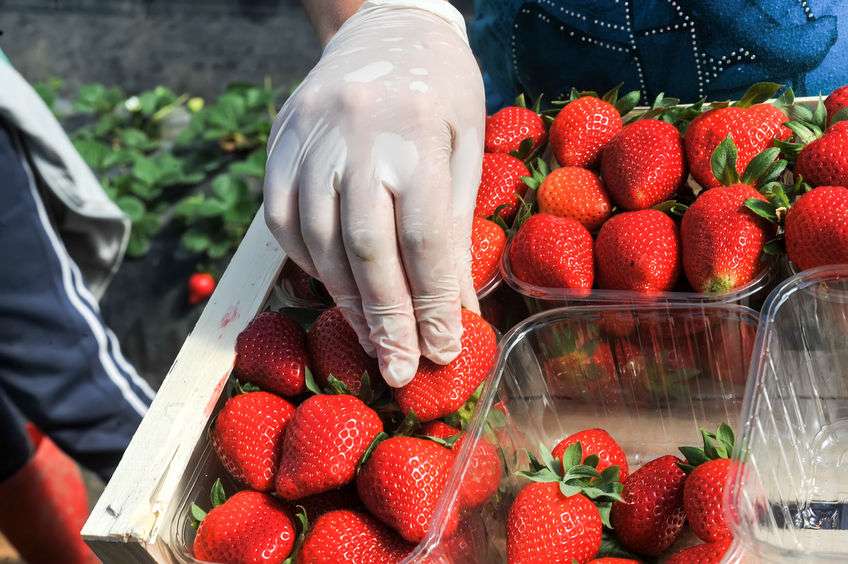
The government’s plans to stop low-skilled migration and end reliance on ‘cheap’ foreign labour has come under criticism, particularly from the farming and food industries.
Mark Jones, partner at law firm Gordons and an expert in the food and drink supply chain, examines the potential impact.
You have to wonder whether the government has given any thought to the food industry’s needs and the likely outcomes given the recent announcement by Home Secretary Priti Patel that it intends to “reduce the levels of people coming to the UK with low skills".
The Meat Processors Association members will tell you 63 percent of their workers are not from the United Kingdom.
In agriculture, 20% of workers come from abroad according to the Office of National Statistics (ONS) and the British Grower’s Association estimated in 2016 that 75,000 non-UK seasonal workers were deployed in their sector.
In addition, the NFU estimates that 99% of seasonal labour is provided by EU nationals and the ONS also believes as many as 25,000 EU workers are employed in the agricultural sector on a full-time basis.
Whilst not all of the workers in the sector will be classed as low skill, the bottom line is that immigration in the food sector is essential if the UK’s farming sector is to continue to operate at its current levels, delivering excellent food at affordable prices.
Without allowing seasonal labour via recruitment from the EU, there is a good chance that the UK will be unable to produce as much food as it currently does, nor produce food at the low costs that UK consumers currently enjoy.
We already import around half of the food consumed in the UK so creating a shortfall in labour is likely to result in an increase in the amount of food we have to buy from EU and, possibly, the USA; which of course has different food standards to the EU.
What is most bizarre about the idea is where the government thinks low skilled workers are going to come from if the UK’s food sector cannot tap into migrant labour.
At the moment, we have record low unemployment at 3.8%; it has never been lower.
Many economists believe you cannot have full employment, which means we are more or less at full employment now.
So, as it stands, there are no workers in the UK who can replace the reliance we have on migrant workers, particularly seasonal migrant workers.
It seems to me there are only two solutions. Firstly, the food sector pays higher wages to attract staff from other industries.
That may sound like a viable solution, but that cost has to be borne by somebody and margins can be thin, particularly in the fresh produce and meat sectors.
Inevitably, the cost will eventually be borne by the consumer but bear in mind that a six per cent increase in food prices in the UK translates to an increased spend for the average household of around £1,648.40 every year.
At the moment, UK food is 8% cheaper than the European average food price and, according to Euromonitor International, second best only to the USA in terms of the amount of household income consumers spend on their food.
Add to that, according to the ONS, the fact that 4.7 million people in the UK live in persistent poverty, the idea of increasing consumer food prices by so much is unthinkable.
That leaves the second option; increased automation. The idea sounds good. It would bring greater productivity, something which the UK is struggling with, and it would take us closer to our global peers (the UK is 22nd on the list of robot density in the world), but the development and adoption of technology to fill the skills gap is not going to happen overnight. It will cost a lot of money and take a lot of time.
A sensible solution would be introduce a system which allows food businesses to access the labour they need and keeps UK food affordable.
If the government wants to move away from allowing low skilled labour into the UK, it needs to do that progressively.
Telling the food sector that in ten months it cannot access the labour markets it has had access to for the last 50 years will place a huge burden on the UK’s food industry and push thousands more into poverty.
